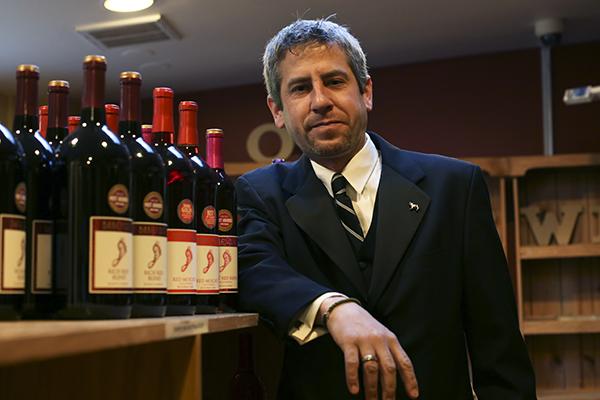
D.C. Council members are tired of neighbors protesting liquor licenses.
At large D.C. Council members Anita Bonds and David Grosso presented a bill earlier this month that would place limitations on community members’ ability to protest new liquor licenses. Neighbors said they are concerned about the possible threat this bill would pose to residential neighborhoods that will not have the same say in liquor licenses as they did before.
The proposed amendments to the bill would restrict community input on licensing decisions, like access to and renewal of liquor licenses. Currently, a group of five or more people or a citizen’s association can protest new liquor licenses before D.C.’s Alcoholic Beverage Control Board. But under the new bill, community groups of more than five people will not be able to protest liquor license renewals.
Bonds and Grosso did not respond to requests for comment.
Kris Hart, who owns FoBoGro, said the West End Citizens Association created “unnecessary” challenges for him about his liquor license. Hart said WECA objected to his liquor license in 2009 under the claim that there would be “undue noise” from the establishment, turning the protest into a lengthy series of court cases.
“We’re looking at upward of $800,000 because old, retired, crotchety old women had nothing else to do but protest my license because it would attract undue noise,” he said. “I had to face such a financial, emotional and mental hardship that made me not even want to open my business.”
The D.C. Council is currently reviewing the bill, according to the Council’s legislative website.
The bill could also impact night clubs in the area because it could change how advisory neighborhood commissions approve liquor licenses in the city.
Nightclub owners said they think this bill would allow nightlife hospitality to grow – typically, neighborhood groups would protest the liquor licenses of late-night establishments that attract younger, noisier crowds.
Last month, a court ruled that Shadow Room, a club on K Street, will have to have a security detail at their club on days that it is open after neighbors complained about the noise and trash from the club.
The Foggy Bottom ANC, which represents Foggy Bottom and the West End, will review licenses for 25 establishments this month alone, followed by 27 more in May, according to a document Peter Sacco, the executive director of the group, posted in a community group last week.
Mark Lee, the president of the D.C. Nightlife Association, said his group has been involved in creating the legislation. He added that he and other members plan to testify once a hearing for the bill is scheduled.
“We believe that this legislation offers long-needed reform measures that will serve all stakeholders and improve the community input process concerning licensing and regulatory matters,” he said in an email.
The Foggy Bottom ANC regularly weighs in on liquor license issues, often advocating for policies to keep the neighborhood quiet and calm.
In February, the Foggy Bottom ANC protested the liquor license for 51st State Tavern because of the noise concerns from a DJ. The neighborhood group approved a resolution to reinstate the license a month later.
Last November, the ANC voted to protest the liquor license for a new hotel near the Smith Center. The hotel’s developer, Jim Abdo, had to negotiate new terms with the neighbors to have the adjusted license approved.
Marina Streznewski, the president of the Foggy Bottom Association, said she was opposed to the bill because of how ineffective some ANC commissioners can be across the city.
“I think people in the neighborhoods need another avenue in which to make their objections known,” she said. “I do know neighborhoods where the ANCs are so dysfunctional that not having someplace else to go would disenfranchise communities on these issues.”







